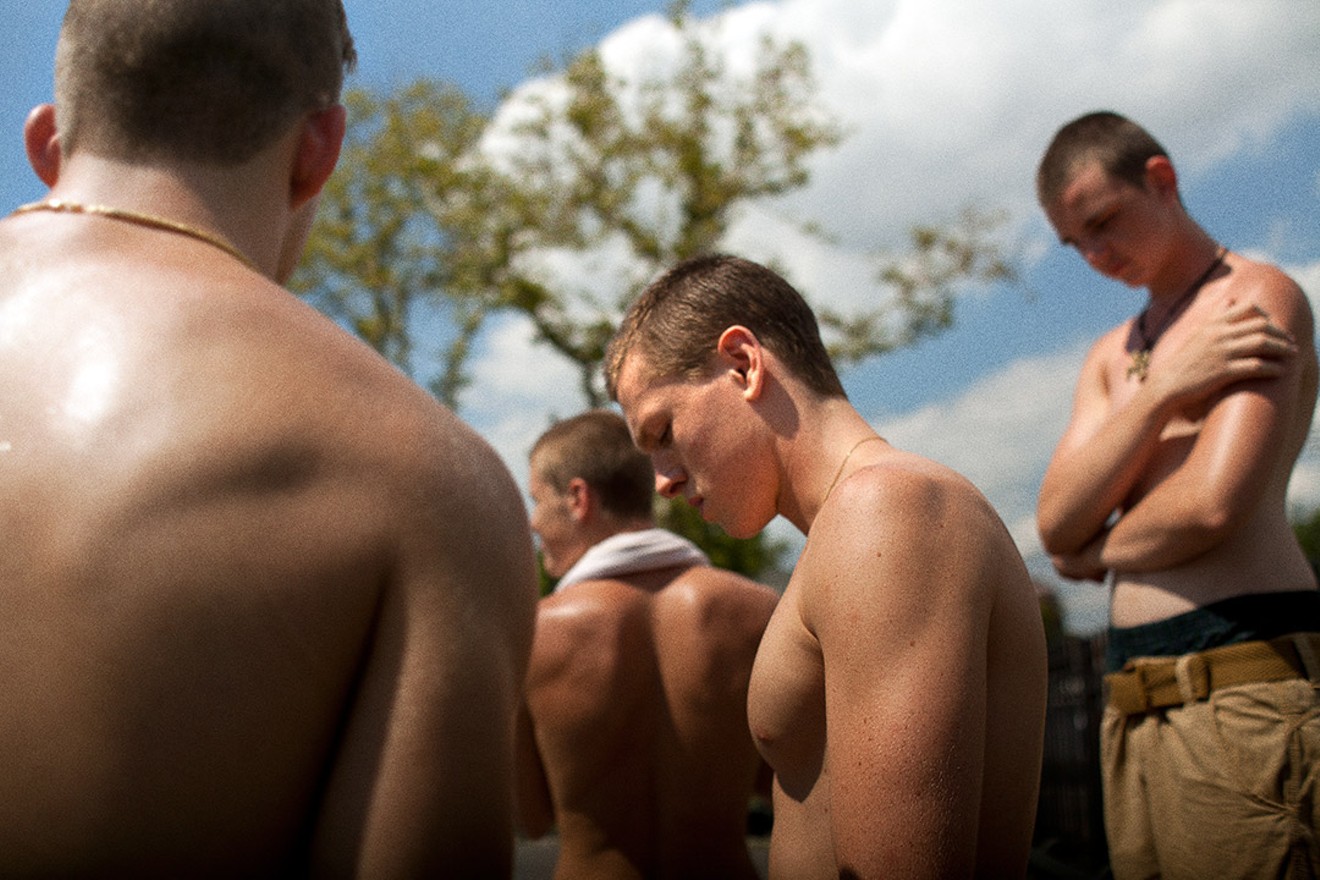In Eliza Hittman’s debut feature, It Felt Like Love, a young girl tests the waters of adult sexuality, offering her body up to the statuesque bros who live in her Eastern Seaboard beach town. She tries her hardest to mimic the women in pornos, the ones all the boys want, but ends up cold, alone and even more confused than she was before. Now, in Hittman’s follow-up, Beach Rats, the director turns her camera on these bros, peeling away layers of ingrained teen gender roles through the story of Frankie (Harris Dickinson), a sexually questioning guy who adopts the hyper-masculine attributes of his friends to assimilate. Hittman’s depictions of sexuality, emotional crisis and parent-teen relationships are rendered here without sentimentality — and with the burning urgency of a stick of dynamite with a lit fuse.
In the outer stretches of Brooklyn, where city streets meet the sea, 19-year-old Frankie sits hunched over in the dark in his parents’ basement, cruising for older men on the internet. The brim of his hat barely lets us see his eyes. He’s not furiously masturbating or drooling over the hot bods on this site; he’s hiding. When one man asks him to meet in person, he responds, “I don’t do that sort of thing.” Eventually, gentle persuasion works on Frankie, and he meets the man in a dense gathering of trees near the beach. He touches and is touched, but his is a cautious ecstasy.
Hittman never lets her protagonist get too comfortable. His need to fit in with his wife-beater-wearing hetero buds is all surface, and it glares like light reflecting off water. At times, it’s difficult to tell apart the four friends — Frankie, Jesse (Anton Selyaninov), Nick (Frank Hakaj), Alexei (David Ivanov) — not just because of their similar looks but also because of their movements. In one scene, the four stand in line at a Coney Island ride and surreptitiously pickpocket a guy’s wallet. Their hands and bodies and minds are in sync, like the gears of a machine.
Frankie continues living his double life, finding small moments of joy and vulnerability with the few men he meets from the dating site. In these scenes, Frankie is no less in rhythm with his male partners than he is with his friends, but that rhythm becomes fluid, the pace relaxed. In contrast to the scenes on the boardwalk — the disorienting house-of-mirrors chaos, the boxing machines, the boy smashing a hammer down with all his might to win a prize for the girl — Frankie’s moments of ease are more heartbreaking to witness because they are so fleeting.
There have been other stories about the emotional toll of being closeted, but Frankie is so afraid of his feelings that he’s barely aware the closet exists. He’s inarticulate and isolated. Yes, the outside world has waved its pride flag — he’s about a 20-minute drive from some of the proudest, outest queers in the country — but in his borough, that side of Brooklyn may as well be in the North Pole.
Where Frankie lives, fireworks explode to oohs and aahs of tourists every night. He can hear the pops and bangs in the distance from his basement as he trolls for dates online, a tourist of sorts himself. To Frankie, the fireworks are unromantic, almost a nuisance, but this is the attitude of a boy who is himself under pressure. All he wants is not to explode. Hittman’s imagery of the fireworks in the sky may echo that of Brokeback Mountain, but she transforms them from something hopeful to an omen, and she suggests no easy ending.
[
{
"name": "Air - MediumRectangle - Inline Content - Mobile Display Size",
"component": "12017618",
"insertPoint": "2",
"requiredCountToDisplay": "2"
},{
"name": "Editor Picks",
"component": "17242653",
"insertPoint": "4",
"requiredCountToDisplay": "1"
},{
"name": "Inline Links",
"component": "18838239",
"insertPoint": "8th",
"startingPoint": 8,
"requiredCountToDisplay": "7",
"maxInsertions": 25
},{
"name": "Air - MediumRectangle - Combo - Inline Content",
"component": "17261320",
"insertPoint": "8th",
"startingPoint": 8,
"requiredCountToDisplay": "7",
"maxInsertions": 25
},{
"name": "Inline Links",
"component": "18838239",
"insertPoint": "8th",
"startingPoint": 12,
"requiredCountToDisplay": "11",
"maxInsertions": 25
},{
"name": "Air - Leaderboard Tower - Combo - Inline Content",
"component": "17261321",
"insertPoint": "8th",
"startingPoint": 12,
"requiredCountToDisplay": "11",
"maxInsertions": 25
}
]











